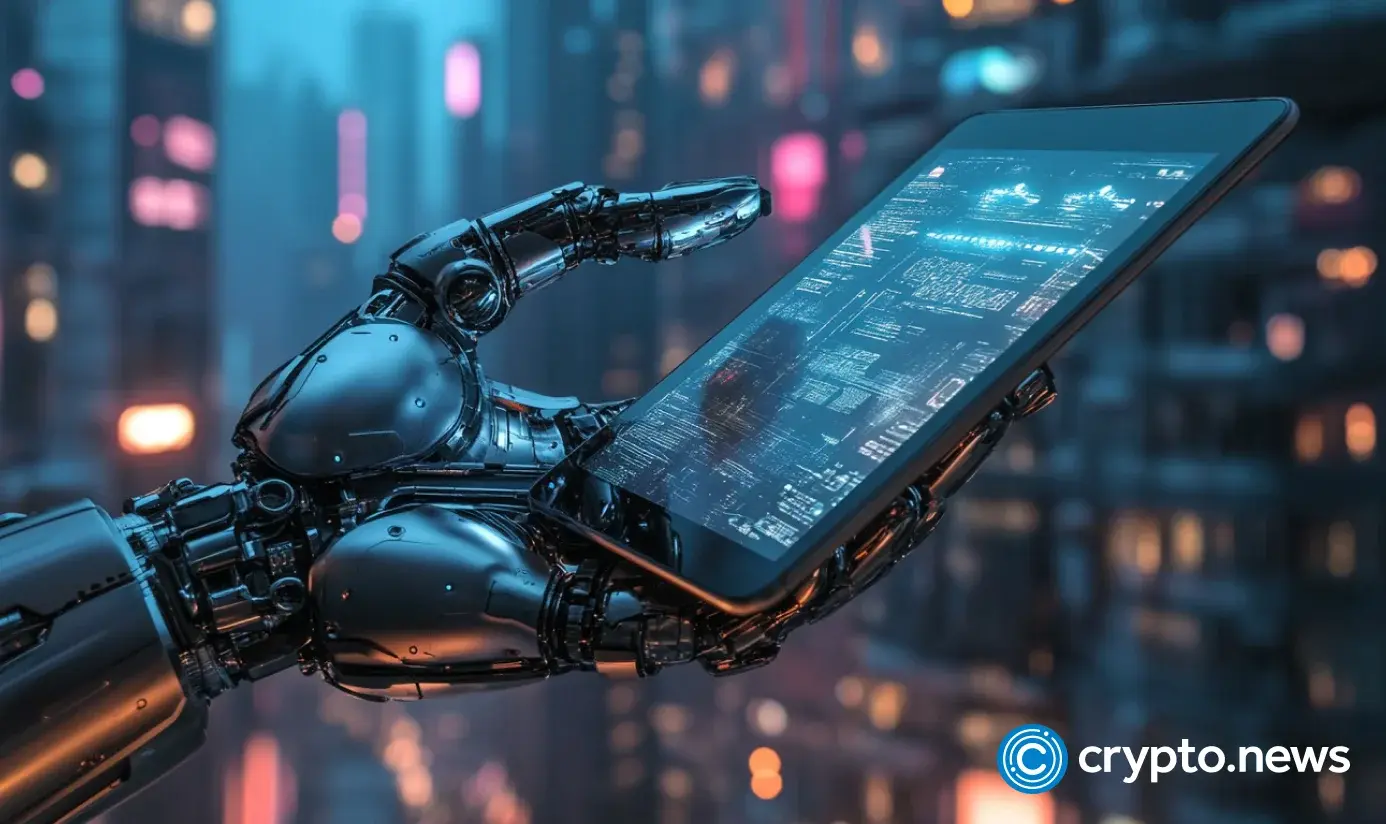Disclosure: The views and opinions expressed here belong solely to the author and do not represent the views and opinions of crypto.news’ editorial.
As the AI arms race continues to heat up from the Big Tech companies on down, and AI is fused into just about every industry there is, the inevitable panic is also beginning to set in: when AI “replaces” us—whether we be doctors, engineers, lawyers, teachers, financial analysts or writers—just how in the hell are we going to be able to make any money?
Take a deep breath. Don’t panic. If you look just a little closer, this is the logical extension of what we saw with so much automation of the information age in the last few decades, if not the industrial age of the last few centuries. The original tech paranoiacs were the Luddites, the class of British workers who objected to the increased use of mechanized looms and knitting frames. These were artisans who had given their lifeblood, creatively and physically, to a craft, and they argued that those now operating these new machines were taking away their livelihoods. Sound familiar?
These protests rose to the level of violence, including the destruction of factories where these machines were being operated. Whatever short-term catharsis this might have provided to the Luddites, it was not a very effective long-term strategy. The mechanized looms and their descendants won out in the marketplace of money and ideas.
Present alternatives misvalue both man and machine
The very human problem of existential crises in the face of machine-based integration is not just a tale as old as time, but one that inevitably keeps repeating in any era where man has come to rely on some type of technology. Amazon had its own version of the Luddites in the early 2000s when it introduced the first robots to automate its warehouse operations, with employees experiencing the same fears the Luddites did.
Who knows, there were probably even protests against the wheel by those who had made their livelihood carrying items on their back, it just wasn’t documented. No one ever wins by moving backwards, only by figuring out how they adapt to the current tide that is always moving forward.
In this most recent stage of AI development, it is just the latest, and perhaps the last stage, of a fully automated information age, effectively bringing an end to that information age and bringing on the next new thing, whatever that might be. It might seem strange and dangerous now, but all it requires is the kind of small-scale and large-scale adaptation we’ve always had to make.
As the development of artificial intelligence exponentially proliferates, economies are contending with the fact that they’ve historically worked by being very labor-driven and the uncertainty that is created when the burden of labor shifts almost entirely away from humans to algorithms in the form of AI agents. Whether it’s physical labor, manual labor, intellectual labor, or creative labor, it has always been labor that has served as the locus of monetization.
No one has yet proposed a workable solution for what will succeed this centering of labor. A popular alternative that is often proposed is Universal Basic Income, which negates labor in monetization entirely. However, this has never been practicable outside of very small pilots because it does not sufficiently take into account hierarchies and priorities driven by the innately human desire for incentivization.
Enter the Intellect Economy
When looking at the disruption caused by the technology revolutions of the past, we tend to focus on the technology itself, rather than how that technology was deployed and who was deploying it. The fears around these technologies are not really about the technologies themselves, but how those with economic power were able to exploit these technologies, and the creative labor they were mimicking, to create greater economic imbalance.
As a means of protection against this outcome, we propose a different kind of UBI: Universal Baseline Intellect. Just as the mechanization of the industrial age took human patterns of physical creation and merely repeated them on assembly lines, the same is now taking place when it comes to the patterns of ideas-based creation. Intellect is being utilized, thus, it deserves to be monetized. We need to ensure that the proper value is being attributed to the input being put into these new systems, and not necessarily on the output, not just because it is the right and fair thing to do, but because it will create the full buy-in across industries at all levels to sustain this new economy.
In building a new economy with new priorities, we have to ensure that individuals retain the right to the usage and monetization of their own intellectual property. Of all the avenues available to do this, decentralization has offered perhaps the easiest and best means of ensuring ownership belongs to the original possessor, with unmatched ability to monetize every type of intellectual “asset” in the digital space. We must prioritize an Intellect Economy where personal AI agents that learn from the human experience are also owned by that very human, and can create earning opportunities on an ongoing basis.
We still have time to make the new AI economy a transformative shift that works for the many, rather than a dangerous disruption that enriches the few at the expense of those many. As we transition to a post-agentic, post-web world, shifting from attention-based to intention-driven systems, we need solutions that ensure humans remain at the center of intelligence. If we can do that, then the fears around AI will turn into hopes of liberating humanity from the chains of useless labor and toward a better and more enlightened form of intellectual value creation.










